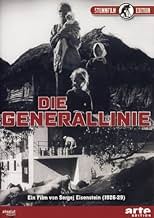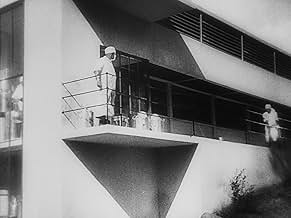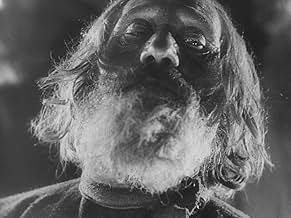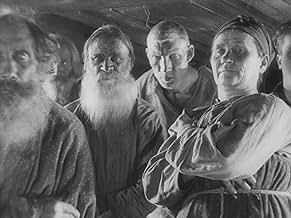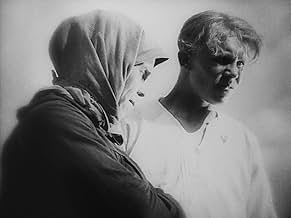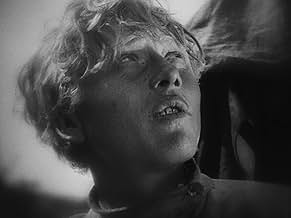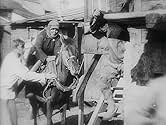IMDb RATING
7.2/10
1.8K
YOUR RATING
100.000.000 peasants - illiterate, poor, hungry. There comes a day when one woman decides that she can live old life no longer. Using ways of new Soviet state and industrial progress she cha... Read all100.000.000 peasants - illiterate, poor, hungry. There comes a day when one woman decides that she can live old life no longer. Using ways of new Soviet state and industrial progress she changes life and labor of her village.100.000.000 peasants - illiterate, poor, hungry. There comes a day when one woman decides that she can live old life no longer. Using ways of new Soviet state and industrial progress she changes life and labor of her village.
- Directors
- Writers
- Stars
- Awards
- 1 win total
- Directors
- Writers
- All cast & crew
- Production, box office & more at IMDbPro
Featured reviews
...from directors Sergei Eisenstein and Grogoriy Aleksandrov. When peasant farm woman Marfa (Marfa Lapkina) is driven to the edge of ruin by the old way of farming, she decides to join other fed up agriculturalists and form a collective farm, working together for a better common future. But the enemies of progress are always at their heels: the fat capitalists, the false-hope Church, and a lazy bureaucracy.
We all know how the Soviet collectivist farming utopia really turned out, and when the lecturing sections of the film are at the forefront it's a tedious bore. But when the directors let their artistic instincts come into play, there's a lot to enjoy here. The visual compositions are often interesting and aesthetically pleasing, and I liked a scene where one farmer dreams of the skies raining milk and cream, and another scene with a new tractor hauling a train of wagons like some kind of centipede over the hills.
The filmmakers also gathered a lot of interesting faces, and use a lot of close-ups. Beauty is not the order of the day, and it almost seems like some of Fellini's later period grotesqueries. I also don't recall a movie featuring so many people with roaches crawling on them. This won't be for many viewers, but for those who appreciate the value of technique and composition, this is recommended.
We all know how the Soviet collectivist farming utopia really turned out, and when the lecturing sections of the film are at the forefront it's a tedious bore. But when the directors let their artistic instincts come into play, there's a lot to enjoy here. The visual compositions are often interesting and aesthetically pleasing, and I liked a scene where one farmer dreams of the skies raining milk and cream, and another scene with a new tractor hauling a train of wagons like some kind of centipede over the hills.
The filmmakers also gathered a lot of interesting faces, and use a lot of close-ups. Beauty is not the order of the day, and it almost seems like some of Fellini's later period grotesqueries. I also don't recall a movie featuring so many people with roaches crawling on them. This won't be for many viewers, but for those who appreciate the value of technique and composition, this is recommended.
I took out this movie from the College library to help write a research paper on collectivization in Stalins Russia. It was actually quite good in that it depicted the hardships of peasants in that era. It is also a good representation of the propaganda that Stalin used in order to trick the peasants into becoming collectivized. I think it is a good film for anyone to view and it's especially beneficial for those trying to get an understanding of historical Russia and peasant life. Beware though, don't be tricked by what you see! Collectivization was not such a positive thing, many people were killed during the processes of dekulakization and others were faced with economic hardships due to shortages and quotas. Overall it is a good propaganda film and is historically significant!
Due to some common interests between German and Russian aristocracy ( the Russians even had aristocrats in their past not to mention they had an Empress called Catherine the Great, as great as this German count's heiresses
), it is not strange that this Teutonic count has understood and even enjoyed Herr S. M. Eisenstein's "Staroye I Novoye".
It is not very usual that for the aristocracy to enjoy Bolshevist films full of proletarian demands that put private property at risk or as it happens in this case, a film about the Communist Party's policy on the subject of the collectivization of the Soviet agriculture. Normally this would be perfect gibberish for this German count, but thanks to Herr Eisenstein 's greatness and directorial talent, the hardships of the heroine of the film, Dame Marfa ( Dame Marfa Lapkina ) breached even the thick aristocratic Schloss walls.
And that's one of the first remarkable aspects of this oeuvre; in spite of the political subject of the film, the powerful images and lyricism ( astonishing and beautiful shot compositions ), especially during the first part of the movie, preserve the artistic merits entirely while serving a propaganda purpose. The second remarkable aspect of the film is the dichotomy between the old and new, the fight to improve the lot of Dame Marfa and her countrymen. There are many discussions because it is not easy even in Russia to change ancient and conservative customs. There are superb metaphors and social criticism ( illiteracy, bureaucracy, religiosity ) which perfectly fit the film, and last but not least, "Staroye I Novoye", is a kind of archaic documentary about ancient customs established deeply in old Russia, those ones that our heroine must fight against. And there is also a lot about agriculture ( very enlightening for this German count), especially about harvesting and how to fatten Russian cows or pigs ( literally, no pun here ).
Herr Eisenstein had to bear during the last era of his film career, unbelievable censorship and mutilation of his work, as happens with "Staroye I Novoye". The film was reedited and Eisenstein accused of sympathizing with Trostky's policies but fortunately the film was restored and showed by the German-frenchified t.v. channel "ARTE", natürlich!, including an evocative music score by Herr Taras Bujewski, that fits superbly Herr Eisenstein primal artistic interests.
And now, if you'll allow me, I must temporarily take my leave because this German Count must buy a tractor for one of his Teutonic heiress.
Herr Graf Ferdinand Von Galitzien http://ferdinandvongalitzien.blogspot.com/
It is not very usual that for the aristocracy to enjoy Bolshevist films full of proletarian demands that put private property at risk or as it happens in this case, a film about the Communist Party's policy on the subject of the collectivization of the Soviet agriculture. Normally this would be perfect gibberish for this German count, but thanks to Herr Eisenstein 's greatness and directorial talent, the hardships of the heroine of the film, Dame Marfa ( Dame Marfa Lapkina ) breached even the thick aristocratic Schloss walls.
And that's one of the first remarkable aspects of this oeuvre; in spite of the political subject of the film, the powerful images and lyricism ( astonishing and beautiful shot compositions ), especially during the first part of the movie, preserve the artistic merits entirely while serving a propaganda purpose. The second remarkable aspect of the film is the dichotomy between the old and new, the fight to improve the lot of Dame Marfa and her countrymen. There are many discussions because it is not easy even in Russia to change ancient and conservative customs. There are superb metaphors and social criticism ( illiteracy, bureaucracy, religiosity ) which perfectly fit the film, and last but not least, "Staroye I Novoye", is a kind of archaic documentary about ancient customs established deeply in old Russia, those ones that our heroine must fight against. And there is also a lot about agriculture ( very enlightening for this German count), especially about harvesting and how to fatten Russian cows or pigs ( literally, no pun here ).
Herr Eisenstein had to bear during the last era of his film career, unbelievable censorship and mutilation of his work, as happens with "Staroye I Novoye". The film was reedited and Eisenstein accused of sympathizing with Trostky's policies but fortunately the film was restored and showed by the German-frenchified t.v. channel "ARTE", natürlich!, including an evocative music score by Herr Taras Bujewski, that fits superbly Herr Eisenstein primal artistic interests.
And now, if you'll allow me, I must temporarily take my leave because this German Count must buy a tractor for one of his Teutonic heiress.
Herr Graf Ferdinand Von Galitzien http://ferdinandvongalitzien.blogspot.com/
Technically, in some ways "Old and New" is a good film. After all, this Grigori Aleksandrov and Sergei M. Eisenstein production has the sort of nice cinematography you might expect from an Eisenstein film. Plus, it has lots of 'faces'--unusual looking folks whose piercing visages seem almost like the folks you'd later find in a Fellini film. However, it also has an incredibly broad message--lacking all subtlety and humanity. Folks in this film are simply tools for Soviet propaganda and the writing is quite poor.
Little did most folks realize at the time, but the film also served to justify the deaths of millions of farmers! This, I'm sure, I'll need to explain a bit. Back in 1928, the Soviet government (and increasingly, this meant Stalin) felt that farm production was a problem due, in part, to the old pre-communism days. Instead of the inefficient individual farms (shown being run by nothing but fat and greedy people in this film), it would be much better if small farmers all banded together to make larger farms where no one owned the land, equipment or output--it all belonged to the collective (and the Soviet government). So, independent farmers were increasingly sent off to gulags in Siberia or were simply thrown off the land to starve to death. The same fate was meted out to the priests--who, in this film, are evil, superstitious and lead the people astray. Oddly, in spite of all these enemies of the State being punished, production actually went down-- though you see none of this in the film! Soon, it was assumed that folks in the collective were lazy, and starting in the early 1930s, these folks met similar fates in many cases. This film helped lay the groundwork for a program that killed between 4-10,000,000 people by most estimates! Rarely has a film been responsible, in part, for more death and evil than "Old and New".
If it was't for the evil that this film justified, it STILL would be shallow propaganda...with nice cinematography. But clearly, its message is meted out in an almost cartoon-like fashion and I think this film is really overrated.
Little did most folks realize at the time, but the film also served to justify the deaths of millions of farmers! This, I'm sure, I'll need to explain a bit. Back in 1928, the Soviet government (and increasingly, this meant Stalin) felt that farm production was a problem due, in part, to the old pre-communism days. Instead of the inefficient individual farms (shown being run by nothing but fat and greedy people in this film), it would be much better if small farmers all banded together to make larger farms where no one owned the land, equipment or output--it all belonged to the collective (and the Soviet government). So, independent farmers were increasingly sent off to gulags in Siberia or were simply thrown off the land to starve to death. The same fate was meted out to the priests--who, in this film, are evil, superstitious and lead the people astray. Oddly, in spite of all these enemies of the State being punished, production actually went down-- though you see none of this in the film! Soon, it was assumed that folks in the collective were lazy, and starting in the early 1930s, these folks met similar fates in many cases. This film helped lay the groundwork for a program that killed between 4-10,000,000 people by most estimates! Rarely has a film been responsible, in part, for more death and evil than "Old and New".
If it was't for the evil that this film justified, it STILL would be shallow propaganda...with nice cinematography. But clearly, its message is meted out in an almost cartoon-like fashion and I think this film is really overrated.
"Old and new' (1929) is the last film of Eisenstein from his first revolutionary period. After "Old and new" his nex Soviet film (after an Mexican interlude) is the historical "Alexander Nevski" (1938). Apparently Stalin was of the opinion that "Old and new" was too artistic and not propagandistic enough.
The film is about a young peasant woman (Marfa played by Marfa Lapkina) striving for collectivization of farming in her village. In so doing she is confronted with resistance of the older farmers.
The film shows us the introduction of tractors and an electronic milking device (new) but also the rituals surronding the visit of the breeding bull to the village (old). The old ritual is not portayed in a disapproving fashion. Maybe this inconsistency in the message of the film annoyed Stalin.
Stylistically the film is distinguished by the use of extreme close ups of mostly old and characteristic faces. In this respect it resembles a film like "La passion de Jeanne d'Arc" (1928, Carl Theodor Dreyer).
What always amazes me is the fact that with respect to Stalinistic propaganda we (including me) are able and willing to seperate the artistic and propagandistic elements in a way that we won't do with respect to Nazi propaganda. I watched a film like "Old and new"although I know that the mandatory collectivizations under Stalin produced innumerable victims. On the other hand I would never watch a film like "Triumph des willens" (1935, Leni Riefenstahl).
The film is about a young peasant woman (Marfa played by Marfa Lapkina) striving for collectivization of farming in her village. In so doing she is confronted with resistance of the older farmers.
The film shows us the introduction of tractors and an electronic milking device (new) but also the rituals surronding the visit of the breeding bull to the village (old). The old ritual is not portayed in a disapproving fashion. Maybe this inconsistency in the message of the film annoyed Stalin.
Stylistically the film is distinguished by the use of extreme close ups of mostly old and characteristic faces. In this respect it resembles a film like "La passion de Jeanne d'Arc" (1928, Carl Theodor Dreyer).
What always amazes me is the fact that with respect to Stalinistic propaganda we (including me) are able and willing to seperate the artistic and propagandistic elements in a way that we won't do with respect to Nazi propaganda. I watched a film like "Old and new"although I know that the mandatory collectivizations under Stalin produced innumerable victims. On the other hand I would never watch a film like "Triumph des willens" (1935, Leni Riefenstahl).
Did you know
- ConnectionsEdited into Sauve la vie (qui peut) (1981)
Details
- Release date
- Country of origin
- Language
- Also known as
- The General Line
- Production company
- See more company credits at IMDbPro
- Runtime2 hours 1 minute
- Color
- Sound mix
- Aspect ratio
- 1.33 : 1
Contribute to this page
Suggest an edit or add missing content


